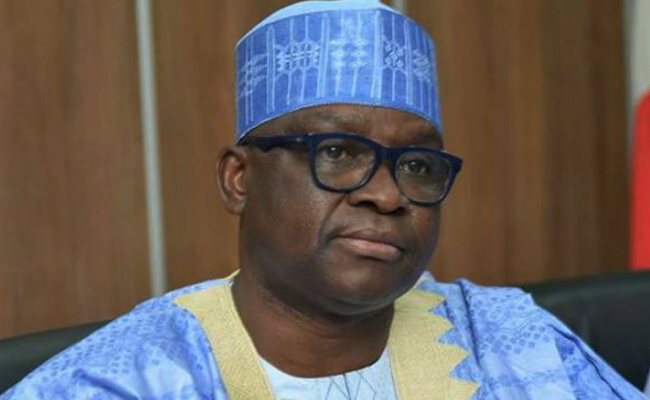
Mr. Abubakar Madaki, a prosecution witness in the ongoing trial of former Governor Ayodele Fayose, testified that the ex-governor did not personally conduct any of the financial transactions relevant to the ₦6.9 billion fraud and money laundering charges.
Fayose, along with his company Spotless Investment Ltd., has been facing an 11-count indictment brought by the Economic and Financial Crimes Commission (EFCC) since 2018. These charges include allegations of misappropriation of funds intended for his 2014 gubernatorial campaign in Ekiti State.
During Monday’s session at the Federal High Court in Lagos, Mr. Madaki, an EFCC investigator, faced cross-examination by the defense counsel, Mr. Olalekan Ojo (SAN). The defense highlighted that no direct evidence connected Fayose to the controversial financial maneuvers. When presented with exhibit D12 and asked if any transactions pertinent to the charges were executed by Fayose, Madaki responded, “There is none.”
This revelation casts doubt on the prosecution’s narrative, which has hinged on Fayose’s alleged orchestration of financial misconduct. The defense further scrutinized the witness’s reliance on secondhand information and documents gathered during the investigation. Madaki conceded that his findings were based on details provided by others, reaffirming, “Yes, including documents recovered in the course of investigations.”
The witness’s admission prompted further questioning about specific figures and transfers linked to the case. Notably, when queried about a sum of ₦4.6 billion transferred from the office of the National Security Adviser (NSA) to Sivan Macnamara’s account, Madaki confirmed the transfer but clarified, “It was meant for the first defendant [Fayose].” He explained that the funds were dispersed in cash to obscure their origins, avoiding direct transfers to Fayose.
The court also delved into allegations involving significant cash payments and property acquisitions. Fayose is accused of accepting $5 million in cash from former Minister of State for Defence, Sen. Musiliu Obanikoro, and retaining N300 million in his account. Additional charges assert that he used N1.6 billion to procure properties in Lagos and Abuja and N200 million for a property in Abuja under his sister’s name, Moji Oladeji.
Despite the gravity of the accusations, Madaki’s testimony has introduced complexities, suggesting that Fayose may not have directly executed the transactions in question. The defense seized on this ambiguity, challenging the foundation of the prosecution’s case and advocating for a reassessment of the evidence against Fayose.
As the trial progresses, this development could prove pivotal in determining the outcome. The court has adjourned until July 19 for further proceedings, where the defense is expected to continue its rigorous examination of the evidence and witnesses presented by the EFCC.
Background:
Fayose’s legal battle began in October 2018, with initial hearings before Justice Mojisola Olatoregun. Following EFCC’s petition, the case was reassigned to Justice Chukwujekwu Aneke in July 2019, where it has continued amidst rigorous legal scrutiny and public interest.
The charges against Fayose contravene multiple provisions of the Money Laundering Prohibition Act 2011, underscoring the high stakes of the trial for both the defendant and the broader implications for Nigerian financial governance.








